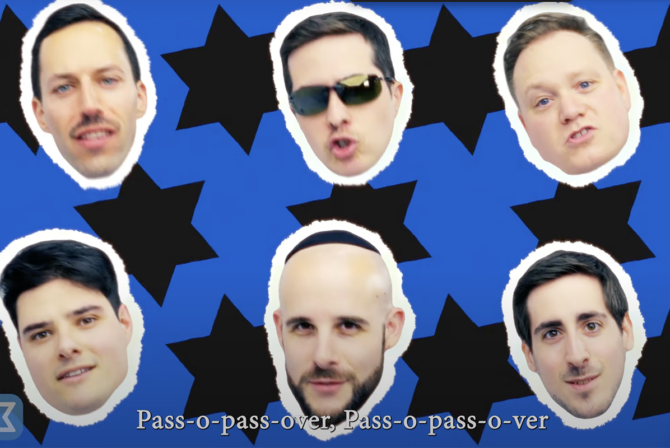Recently, two NFL footbal stars got into a public debate over hair. Player Mike Vick told Colin Kaepernick to chop off his afro and go with a more “clean cut” hairstyle if he really wanted a shot at playing in the NFL again.
The football debate came at the exact time as my family was having the same discussion. Only it wasn’t about the NFL. It was about New York City high school.
My middle-child is a rising eighth grader, which means that, this fall, he’ll be applying to high-school. (Yes, in New York City, you need to apply even to public school.) While some of the schools only require a test for admission, many also call for an interview. A face-to-face interview.
My 13-year-old has a lot of curly hair. Is it an Afro? Is it a Jewfro? Actually, it’s more of a We-Don’t-Know-o (and we don’t particularly Care-o). Considering we’re a family of Russian-Jewish-Black descent (I’m Russian and Jewish, while my husband is Black).
He doesn’t wear an afro for political reasons. He’s not channeling the Black Power movement or making a statement about natural styling. He doesn’t even wear it because he thinks he looks good with it. He agrees that, with his skinny frame and hair, he kind of resembles a dandelion in full bloom.
My son keeps his hair long because he simply hates the physical sensation of getting his hair trimmed, either with scissors or clippers. He hates the sound they make, he hates the vibrations against his skin, he hates the way he itches afterwards. As a result, he tries to extend the time between his haircuts for as long as possible.
But a brown-skinned boy with a big head of hair prompts people to makes all sorts of assumptions. Assumptions we’re not sure we want the New York City’s Department of Education making when it comes to deciding where they’ll slot him for high school.
The city’s education department and practically any parents you talk to in the system claim that ethnic diversity is an extremely important objective for them. And yet New York City still manages to have the most segregated schools in America. Funny how it works out that way.
New York City has a crazy system for high school. There are what they call the Specialized High Schools, which are the ones that only require a test and are currently made up of a primarily Asian population. The city’s next top-performing high schools, known as Screened schools, many of which require the face-to-face interview I mentioned, are majority white. Funny how it works out that way.
Many of the same parents who tell me how important diversity is to them also regularly reassure me that they and their kids “don’t see race.” And, the fact is, they’re right. Research shows that children who belong to the mainstream culture rarely notice race. But kids who don’t–do.
Walking through a bookstore recently, for instance, my son stopped in front of a picture of Rachel Dolezal and observed, “If she can pass for Black, I can pass for white, right?”
My son is a self-taught computer programmer. He has dreams of becoming the next Bill Gates or Mark Zuckerburg (he also intends to “totally fix” the country’s education system). But he knows about Silicon Valley’s diversity problem, and he realizes it could be an obstacle to his fulfilling his dreams. (His other obstacle, which he constantly reminds me of, is a lack of garage. It is, apparently, impossible to launch a tech company without access to a garage.)
The same goes for high school admissions.
Despite being told for eight years that we were now living in a post-racial society, when my brother bought my son a souvenir gun last winter, I made it clear that he would never, ever, ever be taking it outside.
“No one would think it was real,” my son argued. “It has an orange tip!”
“And you still have a brown face,” I countered.
“I see your point.”
Of course, an Afro isn’t a gun in the hands of a dark-skinned boy. But it’s a target, all the same.
He’s going to be judged on it, whether we like it or not and to be frank, whether the people judging him admit it or not.
We could keep his hair long to make a point–although we really don’t have a point to make beyond the fact my son doesn’t like getting his hair cut–and see what happens. We could play it safe. But would that be giving in? Or would the pros outweigh the cons?
My husband teachers our sons that, as Black men, they should never raise their voices. It comes off as threatening. He tells them he should never run down the street. A Black man running is automatically guilty of something. He instructs them on how to talk to police; no arguing, always keep your hands where they can see them. “Yes, officer, no, officer.” But these are all crucial survival tips, as well as being tips for getting what they want from a society reluctant to give it to them. Is hair any different? It actually seems pretty minor in comparison.
So. We’ve still got another few weeks before the school admissions process officially begins.
Should we cut my son’s hair?







